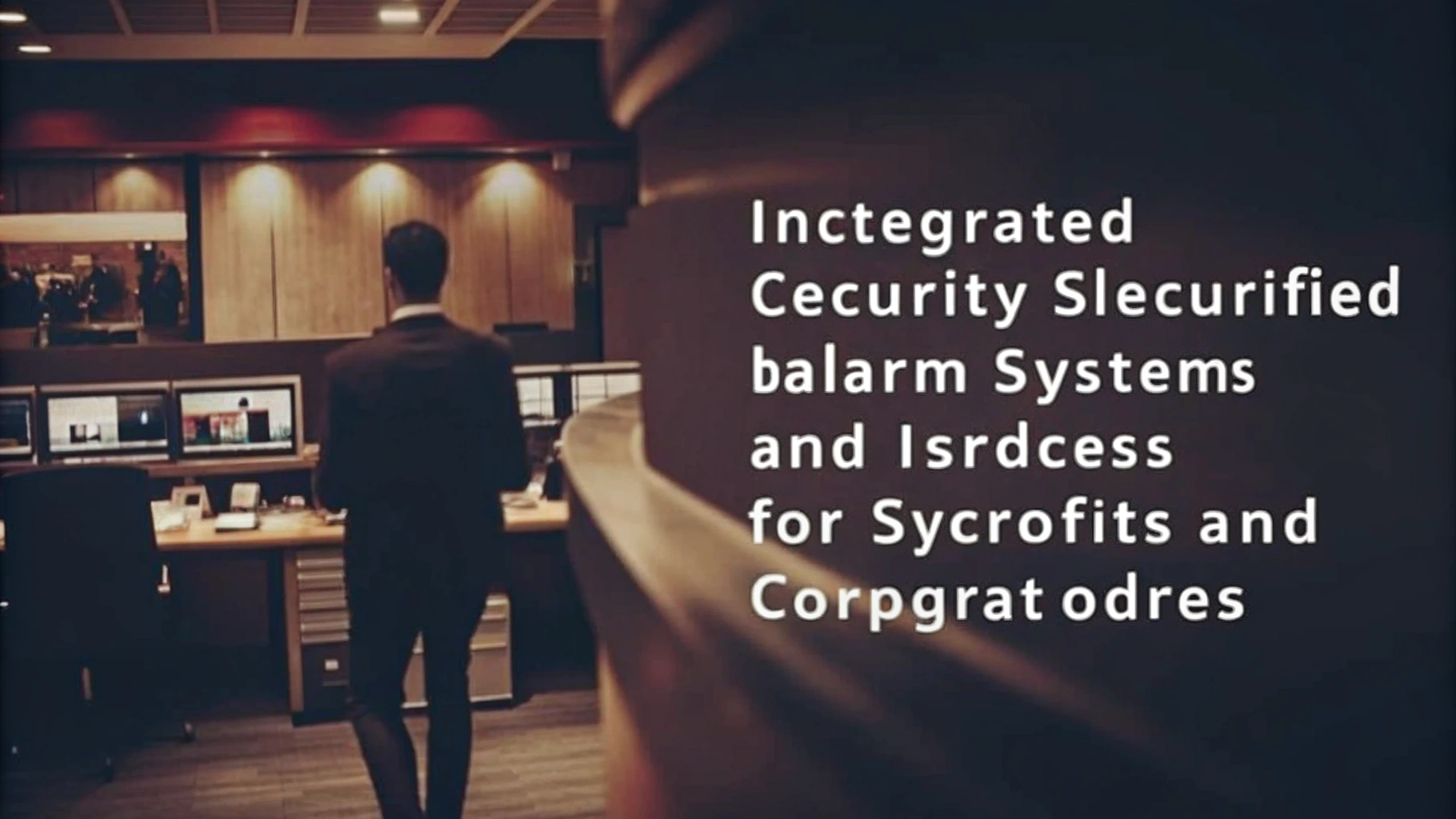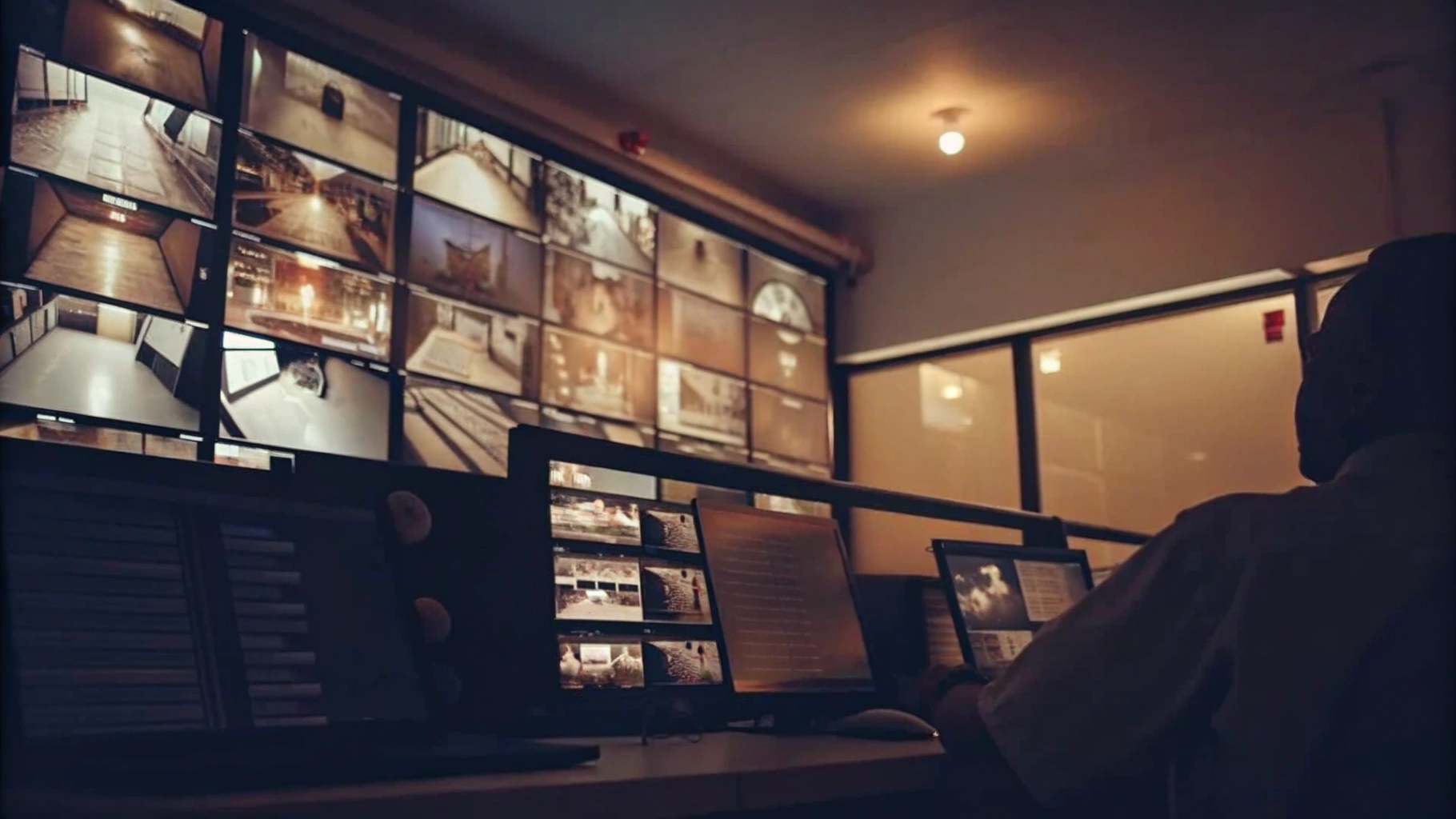
Understanding Security Systems for Companies: Key Features and Importance

Overview
The article underscores the essential features and significance of security systems for companies, highlighting their critical function in safeguarding both physical and digital assets against a variety of threats. It elucidates how integrated security measures—such as surveillance cameras, alarm systems, and cybersecurity protocols—serve not only to avert financial losses and mitigate liability risks but also to bolster a company's reputation and operational integrity through comprehensive protection strategies.
Introduction
In an age where threats to business security are increasingly sophisticated, it is essential for companies to comprehend the nuances of security systems. These systems integrate both physical and digital safeguards, designed to protect assets, data, and personnel from various risks. The reality is that by exploring the critical features and benefits of effective security systems, organisations can enhance their operational integrity and foster a safer work environment.
However, with numerous options available, how can companies ascertain which security measures effectively mitigate their unique vulnerabilities? Ignoring this risk can lead to significant financial, operational, and reputational consequences.
Therefore, understanding the landscape of security is not merely a precaution; it is a strategic imperative for business resilience.
Define Security Systems for Companies
Security systems for companies include a variety of measures and technologies aimed at safeguarding both physical and digital assets against unauthorised access, theft, vandalism, and other risks. These security systems for companies typically integrate physical protection elements—such as surveillance cameras, alarm systems, and access control mechanisms—with cybersecurity measures including firewalls, encryption, and intrusion detection systems. This comprehensive integration establishes a robust protection framework that not only secures employees and customers but also employs security systems for companies to , thereby reinforcing the overall operational integrity of the business.
Expert opinions underscore the effectiveness of security systems for companies as integrated protective measures in enhancing asset safeguarding. Companies that have adopted thorough security systems for companies report significant reductions in theft and vandalism incidents, illustrating the tangible benefits of such investments. Real-world examples include corporate offices utilising security systems for companies, advanced surveillance technologies, and cybersecurity protocols, which collectively bolster their defences against both physical and cyber threats.
The importance of integrated protection frameworks in corporate environments highlights the need for effective security systems for companies. As businesses face increasingly sophisticated risks, a cohesive protection strategy that includes security systems for companies ensures that potential vulnerabilities are addressed, fostering a safer and more secure operational landscape.

Explain the Importance of Security Systems in Business Operations
The significance of security systems for companies in protecting their business activities cannot be overstated. They serve as the first line of defence against potential threats, safeguarding not only physical assets but also sensitive data and intellectual property. A well-executed protection system, like the security systems for companies provided by Priority First, can:
- Prevent financial losses from theft or fraud
- Reduce liability risks
- Ensure compliance with industry standards
For example, during the development of a multi-use complex in Chelsea, Priority First's comprehensive approach included:
- Key holding
- CCTV monitoring
- Logistics management
This contributed to a . Businesses that invest in security systems for companies often experience fewer incidents of workplace violence and theft, fostering a safer atmosphere for employees and clients alike. Furthermore, a strong protective stance can enhance a company's reputation, building trust among clients and stakeholders. As one Facilities Manager in London remarked, "This organisation has exceeded our expectations in every way," underscoring the effectiveness of their proactive management and client-centric values.

Identify Key Features of Effective Security Systems
Effective security systems are characterised by several key features that work in tandem to provide comprehensive protection. Surveillance capabilities, for instance, are essential; high-resolution cameras equipped with night vision and motion detection serve to monitor premises and deter criminal activity. Priority First enhances this with 24/7 CCTV monitoring, ensuring continuous surveillance and swift reactions to potential threats.
Alarm systems play a crucial role as well, with intruder alarms triggering alerts during unauthorised access for immediate response. Access control systems regulate entry to specific areas of a facility, often employing key cards or biometric scanners to prevent unauthorised access.
In today's digital landscape, cybersecurity measures are paramount. Firewalls, antivirus software, and data encryption protect digital assets from cyber threats, safeguarding sensitive information. Furthermore, integration and automation within contemporary protection frameworks combine various elements, enabling automated responses to incidents, such as locking doors or notifying personnel. Priority First specialises in seamlessly integrating its services with existing systems, thereby enhancing overall protection without disruption. This includes the smooth integration of and staffed guarding for a comprehensive safety approach.
Hostile vehicle mitigation (HVM) is another vital component of safety. HVM involves physical measures to prevent vehicles from being used as weapons, including bollards and barriers, which are critical for safeguarding high-risk areas. Regular maintenance and updates are essential to ensure that protection systems remain effective against evolving threats. Ongoing evaluations and revisions assist in adapting to new challenges and maintaining optimal performance.
By incorporating these features, including tailored solutions from Priority First, companies can establish security systems for companies that create a layered approach, significantly enhancing their overall safety and operational resilience.

Conclusion
Security systems are essential for companies, safeguarding both physical and digital assets while ensuring the protection of employees, customers, and sensitive data. By integrating various protective measures—such as surveillance technologies and cybersecurity protocols—businesses can establish a robust framework that mitigates risks and enhances operational integrity.
The reality is that comprehensive security systems effectively reduce incidents of theft and vandalism, thereby fostering a safer workplace environment. Features like 24/7 monitoring, access control, and cybersecurity measures collectively contribute to a layered approach to security. Real-world examples, such as the proactive measures taken by Priority First, illustrate the tangible benefits of investing in effective security systems.
That said, the significance of security systems transcends mere protection; they are crucial for building trust and ensuring compliance with industry standards. As businesses encounter increasingly sophisticated threats, adopting a well-integrated security strategy is not just a safeguard but a vital investment in operational resilience and reputation. Companies must assess their security needs and implement tailored solutions that will not only protect their assets but also enhance overall productivity and peace of mind.
Frequently Asked Questions
What are security systems for companies?
Security systems for companies are a combination of measures and technologies designed to protect physical and digital assets from unauthorised access, theft, vandalism, and other risks. They typically include both physical protection elements, like surveillance cameras and alarm systems, and cybersecurity measures, such as firewalls and encryption.
How do security systems integrate physical and cybersecurity measures?
Security systems integrate physical protection elements, such as access control mechanisms and surveillance technologies, with cybersecurity measures like intrusion detection systems and encryption. This integration creates a comprehensive protection framework that safeguards employees, customers, and sensitive data.
What are the benefits of implementing security systems for companies?
Companies that implement thorough security systems report significant reductions in theft and vandalism incidents. The integration of physical and cybersecurity measures enhances asset safeguarding and reinforces the overall operational integrity of the business.
Can you provide examples of security systems in action?
Real-world examples include corporate offices that utilise advanced surveillance technologies and cybersecurity protocols as part of their security systems. These measures collectively strengthen defences against both physical and cyber threats.
Why is an integrated protection framework important for businesses?
An integrated protection framework is crucial as it addresses potential vulnerabilities in corporate environments, especially as businesses face increasingly sophisticated risks. This cohesive strategy fosters a safer and more secure operational landscape.




